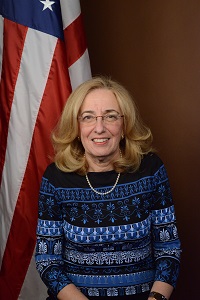OP-ED: RHODE ISLAND TOURISM PATH FORWARD STRATEGY
R.I. needs a strategy for rebuilding tourism industry


By Rep. Lauren H. Carson
We are now three weeks into the second phase of Rhode Island’s economic reopening, three months after COVID-19 made its way into our state. It is time for us to do better than plan for survival of the moment or the day. It is time for the creation of long-term economic recovery plans for Rhode Island.
As a representative for Newport, I am deeply concerned about the path forward for the tourism sector, which is our state’s fourth-largest industry. Visitor spending in Rhode Island has topped over $4 billion in annual revenue, or about 4% of the state’s economy. It employs over 35,000 direct jobs, about 6% of all employment, the fifth in employment ranking overall. The visitor industry directly affects lodging, food and beverage, recreation and entertainment, retail trade, air transport, business services and gasoline sales.
It’s summer and the Fourth of July is right around the corner. Since our state’s tourism marketing director recently quit, I question whether there is anyone in state government who is steering the ship and creating a plan to help rebuild the industry. We must develop and implement a strategic plan to instill confidence in travelers and our neighbors that Rhode Island is not only an enjoyable destination, but that it is ready for them to enjoy safely.
The Rhode Island hospitality industry – the hotels, restaurants and attractions, and the regional tourism districts that represent them – are more than willing to work cooperatively with the state to operate safely and to lay out the welcome mat for visitors. But they need a coordinated effort at the state level that markets the Ocean State as safe, open and available to the many visitors whose vacation plans have been upended. They also deserve to benefit from a long-term strategy to strengthen their vital industry.
There is federal funding available now through the CARES Act that governments can use specifically for travel and tourism-related marketing campaigns. EDA’s CARES Act Recovery Assistance can advance economic development in communities negatively impacted by COVID-19. This is a unique opportunity for Rhode Island to develop a long-term strategic plan to build a tourism industry road map for recovery. We should be chomping at the bit to get these dollars into Rhode Island today.
A resulting strategic recovery plan must include an assessment of COVID-19 impacts on our local visitor economy; identify potential recovery scenarios; determine resident sentiment toward tourism; determine strategies to restore confidence; rally stakeholders to join recovery efforts; rebuild capabilities; identify opportunities and differentiate our destination from competitors.
A critical element of the plan must be working with industry partners and stakeholders to reopen the visitor economy with clean and safe visitor experiences. In order to effectively bring visitors back to our community and reap the economic benefits that they bring with them, we must provide visitors with confidence that Rhode Island is embracing the most vigorous and well-informed practices, and ensure those practices adhere to a uniform high standard throughout every visit.
I encourage Rhode Island Commerce to apply for this funding now and set the wheels in motion to comprehensively plan for the rebuilding of the tourism sector in Rhode Island.
In Newport, I have started to notice the trickle of out-of-state license plates and visitors on the streets. All is not lost this season. We must seize the moment and chart our way toward making the most of the 2020 travel season and develop a long-term strategy to shore up our tourism industry for years to come.
Rep. Lauren H. Carson (D-Dist. 75, Newport) was the chairwoman of the Special Legislative Commission to Study Methods for Growing Tourism.